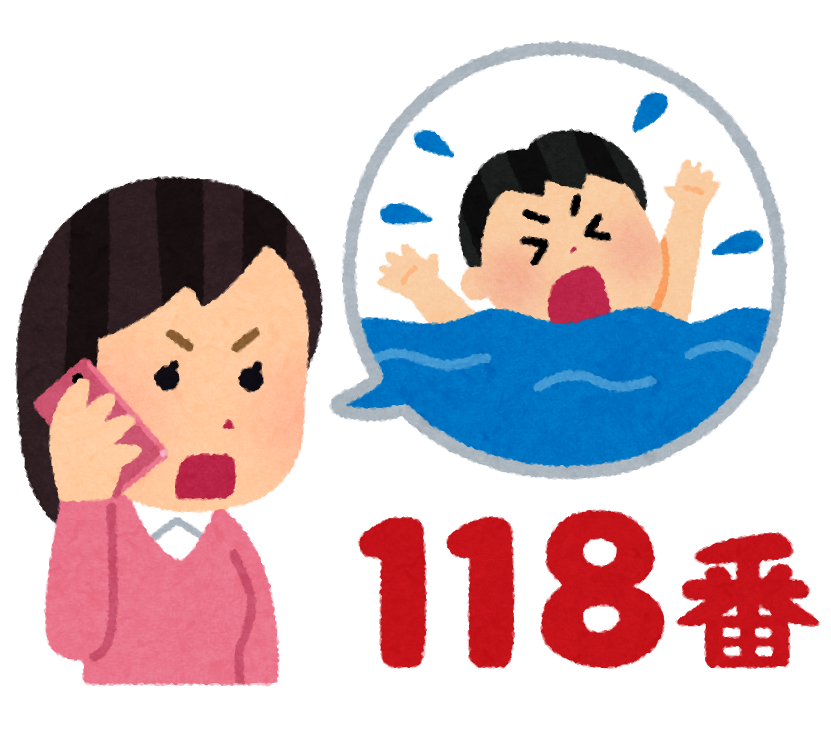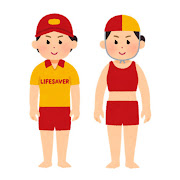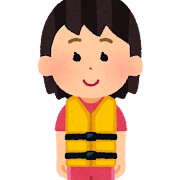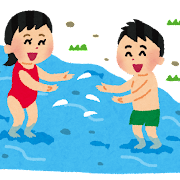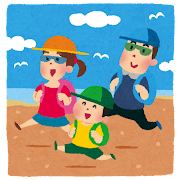What is 118? Stay safe in Ocean and Rivers
2025.03.26
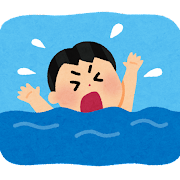

The summer vacation is coming, more people are heading to the ocean and rivers for fun. Unfortunately, the number of drowning accidents is also increasing, with children being particularly vulnerable to getting swept away or drowning. In this article, we will explain important safety tips for playing in the water and introduce the emergency number 118.
What is 118?
The number 118 connects you to the Japan Coast Guard, which responds to maritime accidents and emergencies. If you see someone drowning or being swept away outside a designated swimming area, call 118 immediately. However, if the incident occurs at a supervised beach, seek help from a lifeguard or beach patrol.
When calling 118, provide the following four key pieces of information:
1.What happened? (Describe the accident)
2.Where did it happen? (Give the exact location)
3.How many people are involved?
4.Your name and contact information
- Example of aThe conversation when you call to 118
Japan Coast Guard: はい。こちら海上保安庁118番です。事件でしょうか。事故でしょうか。 “Hello, this is Japan Coast Guard, 118. Is this an emergency or an accident?”
You: 事故です。人が溺れています。”It’s an accident. Someone is drowning.”
Japan Coast Guard: 溺れているのはどこですか?”Where is the person drowning?”
You: ○○県○○市の○○海岸の近くです。”Near ○○ Beach in ○○ City, ○○ Prefecture.”
Japan Coast Guard: 溺れているのは何人ですか?”How many people are drowning?”
You: 1人です。男の子が溺れています。”One. A young boy is drowning.”
Japan Coast Guard: ライフジャケットは着用されていますか?”Is he wearing a life jacket?”
You: いいえ。着用していないです。”No, he is not.”
Japan Coast Guard: 分かりました。あなたの名前と電話番号を教えてください。”Understood. Please provide your name and phone number.”
You: 名前は○○○○です。電話番号は○○○―○○○○―○○○○です”My name is ○○○○. My phone number is ○○○-○○○○-○○○○.”
Japan Coast Guard: ありがとうございます。すぐに向かいます”Thank you. We will dispatch help immediately.”
If you witness someone drowning outside a designated swimming area, call 118. However, if you cannot remember 118 but recall 119 (fire and ambulance services), don’t hesitate to call 119. The fire department will contact the Japan Coast Guard if needed.
For drowning incidents in rivers, call 119.
For drowning incidents at a supervised beach, notify the lifeguards or beach patrol immediately.
High-Risk Areas for Water Accidents
- Strong currents
Some areas in the ocean have powerful currents that pull people out to sea at speeds of over one meter per second. These currents are difficult to spot with the naked eye, and many people realize they are being carried away too late.
- Sudden Depth Changes
Both oceans and rivers have areas where the depth drops suddenly. Many drowning accidents happen in these spots. Never assume an area is safe just because it looks shallow. Always be cautious and aware of the possibility of sudden depth changes.
Children should never enter the water alone—always swim with an adult.
How to stay safe in the water
- Wear a life jacket
A life jacket significantly reduces the risk of drowning. It helps keep your body afloat even in deep water, preventing panic and exhaustion.
- Avoid Going Beyond Knee-Deep Water
When children are in the water, make sure they do not go deeper than knee-level. While this does not guarantee complete safety, it greatly reduces the risk of drowning
- Always Swim with an Adult
Children should never swim alone. Adults should enter the water with them rather than just watching from a distance, as they can immediately notice and respond to any danger.
What to Do If You Get Swept Away
If you get caught in a current, remember to “FLOAT AND WAIT.”
Trying to swim back against a strong current can exhaust you and lead to drowning. Instead:
- If you are not wearing a life jacket, lie on your back and float.
- If you are wearing a life jacket, sit in a floating position to keep your face above the water and retain body heat.
Summer is a time for fun at the ocean and rivers, but water accidents increase during this season. Follow these safety tips to avoid danger. If you see someone drowning, call 118, 119, or alert lifeguards and other nearby personnel for help. Stay safe and enjoy the water responsibly!
